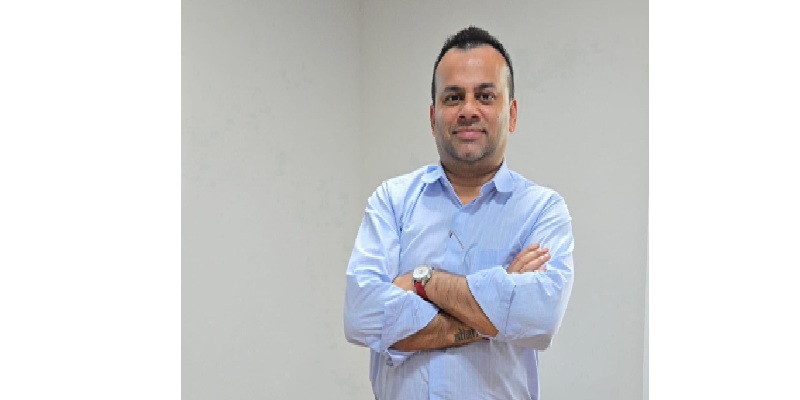Schedule a Call Back
IPF Buyer-Seller Summit: Fulfilling Make in India goals
 Industry News
Industry News- Oct 06,20
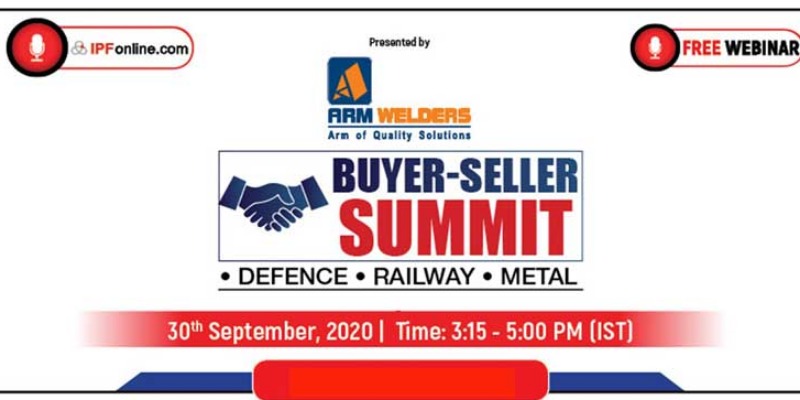
In a bid to develop and to offer support to the MSMEs, the government has asked PSUs to procure and indigenise product development of its imported supplies. Public Sector Undertaking (PSU) companies have lined up and are currently offering various means to develop products, manufacture and initiate a domestic supply chain, leading to the overall development of the Indian industry.
Considering the above premise and to connect MSMEs with public procurement companies, Industrial Products Finder (IPF) hosted a Buyer-Seller Summit on September 30 that highlighted business opportunities and discussed avenues where MSMEs can enter the domestic supply chain. The eminent speakers also educated MSMEs over how to approach the companies and various procurement agencies digitally, explaining the process and ways and means to mitigate the issues if any.
ARM Welders - one of the leading players in welding equipment industry - was the Presenting Partner of the “Buyer-Seller Summitâ€Â.
The webinar - which was moderated by Rakesh Rao, Executive Editor, Industrial Products Finder (IPF) - included panelists such as KK Yadav, Director, Defence Investor Cell (DIC), Department of Defence Production (DDP), Ministry of Defence; Ram Gopal, ED- Corporate Material Management Group, Steel Authority of India; Rajneesh K Tomar, Executive Director, The Research Designs & Standards Organisation (RDSO), Ministry of Railways; Rohit Soni, Chief Commercial Officer, Vedanta Ltd; Piyush Kumar Sinha, GM-Indigenisation, Hindustan Aeronautics Ltd; Mahesh Shenai, Associate VP-Sourcing, Godrej & Boyce Mfg Co. Ltd.; and Brijesh Khanderia, CEO, ARM Welders Pvt Ltd.
In defence of self-reliance
Defence Investor Cell (DIC) falls under the Department of Defence Production and was launched in 2018. The cell interacts as a single point of contact for all investment opportunities, procedures and regulatory requirements in the defence sector. DIC handles both investment promotion and facilitation. KK Yadav, Director, Defence Investor Cell, educates, “DIC facilitates the process of approval of industrial licence and NOCs for export or import while having no right to issue any of these. It also advises over offset polity and discharge. It facilitates the availability of testing facilities of OFB/DRDO/DPSUs/Services for requirements of the industry, particularly for MSMEs. It is a guidance provider regarding Defence Procurement Procedure and facilitates investors to identify locations for proposed investments.â€ÂAs India has opened up gates for small companies via PSU procurement MSMEs and start-ups can identify outsourcing opportunities with OFBs/DPSUs in the Defence sector while; the handholding support can be provided using DIC. The relatively new body, DIC, will also help facilitate interaction between the start-ups/MSMEs/investors and the SHQs for feedback regarding the requirement of the product being developed and also if there is a need for handholding support or policy interventions.
“DIC helps facilitates Defence PSUs like Hindustan Aeronautics Limited (HAL), Bharat Electronics, Mazagaon Dock Limited, Bharat Dynamics Limited, BEML Ltd, Mishra Dhatu Nigam Limited (MIDHANI), Goa Shipyard Ltd, Hindustan Shipyard Ltd,†Yadav points out.
Speaking about some key initiatives and success stories, Yadav informs, “We have helped Ashok Leyland, Defence to obtain NOC for their participation in Defence Vehicles Dynamics (DVD) Expo held in the UK. Further, they have also helped Tonbo Imaging India Pvt Ltd, Bangalore to test their new technology at a defence test site. DIC has also played a key role in L&T Defence during their development of Fire Control Radar. The above examples state that the DIC has been at the forefront when it comes to connecting companies, solving difficulties and enabling lagging payments or be it policy intervention.â€Â
MSME for aerospace
Moving ahead, a team from HAL shared business opportunities with the company as India is moving towards indigenisation. HAL is among the top 50 aerospace companies with sales of 2110 cr in FY 2019-20. The company boasts of its 20 production units and 10 R&D centres for its reliable production and commitment. Looking at the Aircraft production, the company has achieved 17 indigenised types with having manufactured over 2700 products and having licensed 14 types for over 1400 products.The HAL team comprises Piyush Kumar Sinha, GM- Indigenisation; VS Srinivas, GM- Quality & Addl In-charge of JV & Outsourcing; Niaj Mondal, Sr. Manager- Indigenisation; and Anbarasu TV, Dy. Manager- Outsourcing.
HAL is involved in design and development, manufacturing engines and systems, aircraft, helicopter and aerospace structures. Further, it also delves into MRO and missile integration. Current operations of HAL include manufacturing of Russian based fighter aircrafts SU-30 MKI and LCA; military transport aircraft- Do 228 and Helicopters- ALH and CHEETAL. Maintenance & Overhaul operations catering to fighters, trainers, transport and helicopter segments at HAL contributes to a significant part of its revenue. HAL has a Repair & Overhaul Centre at Barrackpore, West Bengal.
To achieve self-reliance, there is a need top have indigenous development, collaborative efforts, venturing and investing in new age technologies and boosting R&D start-up ecosystem believes Anbarasu TV.
“There is a need to invest in the technologies which have been denied. Many critical technologies are imported despite the technological growth in India. The power plant is one such critical area where we rely on imports. Private companies can play a massive role in the development of these technologies,†adds Anbarasu TV.
Anbarasu TV also cited an example, in 1998 during Pokhran tests and subsequent embargo in India, General Electric (GE) stopped their engine supplies to India and LCA programme was delayed which took India back to the drawing board.
Private players should exploit collaborations, JVs and MoUs for better product and technology development with a much-needed push towards innovation. These collaborations will help to create better products based on reverse engineering. Many countries have been successful in going this way.
Integrating Design Labs and Industry & Academia: Reiterating KK Yadav’s views, VS Srinivas states, “Defence Innovation Organisation, the IDEX part of it deals with this. They collaborate with various labs, startups, companies, academic institutions to identify prospective projects for the funding and feasibility study.â€Â
Creating the capacity cluster which will allow manufacturers of products such as sensors, avionics, hydraulics, electrical etc. This would help to serve companies with a complete solution from one zone/ area.
Boosting R&D start-up to encourage the participation of private industries in a big way. “Countries like the US, Germany and South Korea have invested heavily on R&D. Around 2-3 per cent of their country’s Gross Domestic Product (GDP) goes into R&D while in India its stands at 0.5 per cent,†suggests Anbarasu TV.
In a move to boost MSME and small business, HAL envisages driving partnerships changing its supplier base by developing Tier 1 and 2 supplier bases in India. Currently HAL takes care of processes like design, assembly, integration, MRO followed by structure, propulsion & system manufacturing. Private industries supply machining, GSE/GHE/tooling and aero-structures. HAL, in a move to benefit Indian companies have decided to only capitalise on design, assembly and integration while keeping avenues like structure, propulsion, system manufacturing and MRO to its Tier 1 suppliers and supplies like machining, GSE/GHE/tooling and aero-structure to its Tier 2 suppliers.
Also Read: Webinar: Unlocking the export challenge
India is one of the largest importers of military equipment and weapons. India’s import share in the global pie is around 9.5 per cent. Arms imports have shot up by 24 per cent between 2013 and 2017. The rise in imports has been on the tensions mounting over the borders and even the government’s move to upgrade defence technology and weaponry.
Key thrust area for providing support to production & maintenance, repair and overhaul (MRO) services. Niaj Mondal shares, “At HAL, indigenisation is carried out across the company segments and around 95000 products have been indigenised. This indigenisation is carried out with the involvement of private and public companies.â€Â
Sharing HAL’s thought process behind these indigenisation initiatives, Niaj Mondal states, “Achieving self-reliance to do away with the dependence on foreign OEMs is the primary objective of the HAL. This also helps in saving foreign exchange and develop globally competitive products and its supply chain in India and further expanding the local industrial supply ecosystem for aerospace.â€Â
HAL also helps companies to indigenise products by providing funding where funds are issued in a phased manner. Once the supplier develops the products successfully, HAL places orders. While there are other routes for funding like self-funded and industry-funded options and in such a case the supplier may get an assurance of orders on successful completion of the trials.
Indigenisation on track
Research Designs & Standards Organisation (RDSO), the R&D organisation under the Ministry of Railways that functions as a technical adviser and consultant to the Railway Board, the Zonal Railways, the Railway Production Units, etc. Rajneesh K Tomar provided detailed insights into the Railway’s procurement process and some key opportunities that will increase the need for suppliers.Railway is probably the biggest public procurement agency in India with a capital outlay of 1.5 lakh crore and annual procurement of 70,000 crore. Besides, RDSO controls 25 per cent items. New Metro projects have been announced all over India, dedicated freight corridors, high-speed rail and latest being the private trains.
“Based on these reforms, one can understand that the railways will need a regular supply of cargo wagons in such an expansive plan. and coaches. Estimated annually wagon procurement comes to 10,000 units and business estimated comes to around 2,500 crore. Thus, this is an opportunity for suppliers to register with the various railway agencies and bag these contracts,†enlightened Rajneesh K Tomar.
Other opportunities with railways, covered in his presentation were maintenance of assets such as track installation, signalling systems, traction distribution installations, workshops: >30, coaching depots: >75, loco sheds: >50, ROH depots: >30, MEMU/DEMU sheds: >20 and telecom gears.
The current vendor registration process is carried out IREPS portal (Indian Rail E Procurement System). Registration and all other processes are completely online while guidelines are available on the website including ISO documents, Specs, Drawings, STR etc. One can also track online application status and even pay online fees. Even online fixing appointment to meet officers through vendor helpline numbers is available.
“Currently the entire procurement process is undertaken on the digital platforms on dedicated websites and in some cases on clubbed the manner on GeM. However, the railway is working ahead to club all its procurements under a collective website for railways and all e procurements under the Aatmanirbhar Bharat Mission,†says Tomar.
Building a strong bond
Brijesh Khanderia briefed about ARM Welders' history and its various plant locations. “We have designed Long Arm Spot Welding guns especially for LHB Coaches, used for spot welding of roof for railway and metro coaches and also for the truck cabin fabrication. They are ergonomically designed for welding with high forces and welding current.â€ÂApart from these, the company has also developed high strength aluminium alloy gun which is used for spot welding in the automotive sector. These guns are mounted on servo robots. The company has also developed Seam Welding machines which are heavily used in the automotive industry for critical applications like leak-proof welding of the fuel tanks.
Mahesh Shenai of Godrej & Boyce, in his presentation, informed about the SME engagement process right from evaluation to supplier of the company. “As a general practice, a tech-commercial team evaluates SMEs. We also have a third-party evaluation system. This way the supplier gets registered completing the first step. Under the development programme of Godrej, a monthly rating report is generated based on which a supplier’s annual report is also generated in the audits and assessment. The last stage concludes with getting credit rating from an agency, conducting a supplier survey where suppliers can suggest improvement areas which narrow down to supplier scores.â€Â
At various stages, Godrej connects its large supplier base. The company engages suppliers with its commercial, process and technology platforms. On a commercial platform, the company sources components that the other supplier is already supplying. This encourages competitiveness among suppliers and even leads to better quality supplies. Second, suppliers need raw materials like steel, copper, or others. The company issues a commodity list of various locations for its suppliers to source their raw material.
Coming to the process platform, the demand forecast is sent across the supplier base to let them channelise their priorities and workforce in a way that they can manage their resources and source accordingly which helps in better management at the supplier’s side. Another arm of this level is that of process optimisation brainstorming sessions are held to bring in process efficiency to eliminate wastages. The company also helps streamline the waste generated by one supplier to be used as a raw material to another supplier. This ultimately reduces waste and brings in process efficiency.
In the development program at Godrej, an SME goes through 3-phased sourcing program. This involves pricing, documentation, drawings, quality checks, the testing facility at the supplier’s end, documentation for supplier capability and manufacturing process. It is further followed by benchmarking procurement prices with competitors, tie-ups for joint buying, quality improvement with 7QC tools, efficiency initiatives like CAPA for suppliers. The final and the 3rd phase comprises quality training and to identify value in sourcing and training for suppliers to improve projects.
To stay up to the mark with the quality of all the procurement, the company conducts six-monthly audits by third parties which evaluate suppliers for capacity and capability, process and production control, maintenance and calibration, incoming material, safety and traceability.
Making India Aatmanirbhar
SAIL annual procurements are worth Rs 10,500 crore which includes raw materials & spares and Equipment. Major categories of procurement comprises mechanical and electrical spares, refractory, rolls, roll chocks/bearings, lubricants, petrol and diesel, tools, Tackles and consumables, chemicals, ferro alloys, raw material and NF metals, bearings, medical, general stores & others.In her presentation, Neera Sud, GM, Corporate Material Management, SAIL discussed about methods of procurement by SAIL. She also informed about the various sole plant procurements. Neera Sud states, “Each of SAIL’s plants such as Bokaro, Rourkela, Durgapur, Bhilai have their independent materials management unit. About 30,000-40,000 items are procured. The products are subjected to the procurement department and inspection wing although SAIL has waived off 90 per cent of pre-dispatch inspections but there is an inspection level at the store.â€Â
SAIL also has a vender development cell that is currently active as the company wants to have MSME vendors on board. “The SAIL’s procurement process follows the Purchase Contract Manual; which was revised recently this year. This was revised considering inputs from GFR 2017. In fact, after revision, we saw that during the COVID pandemic there were many revisions on the GFR, thus, be informed that there may be another updated revision of the same,†informs Sud.
Sud also adds that the SAIL prefers to purchase from MSME and Make In India supplier upholding the Aatmanirbhar Bharat initiative.
Some key initiatives conducted by SAIL are those of issuing small quantities of steel for MSME, moving imported product contracts to domestic MSMEs to develop and indigenise locally. SAIL plants of Raurkela and Durgapur have also issued bank guarantees to offer handholding support for working capital needs.
Vedanta Group is the largest aluminium and zinc producer in the country. In aluminium the company has 37 per cent market share with 2.3 mega tonne production. Zinc and Lead are predominantly produced in Rajasthan. The company produces around 680 tonne of silver. In oil & gas, the company is the largest private-sector crude oil producer operating 25 per cent of India’s crude oil production. Informing companies about which business opportunities and partnership options are available with the group, Rohit Soni, states, “The company is looking ahead for partnerships approach for the holistic scenario. The company is also open to sustainable partnerships for indigenisation of spares. We are already working with some of the startups in 3D printing space to add value to what we produce. The company is also looking at technology adoptions. Products pertaining to waste management and disposal, or processing are open to discuss with us what value it can add and how to leverage it.â€Â
With lots of information to share, the webinar brought to attention that Government E-Marketplace (GeM) is the current buzz word among all government procuring companies. For the MSME sector to enter government procurement line-up, GeM registration will be a key to unlock opportunities.
Related Stories
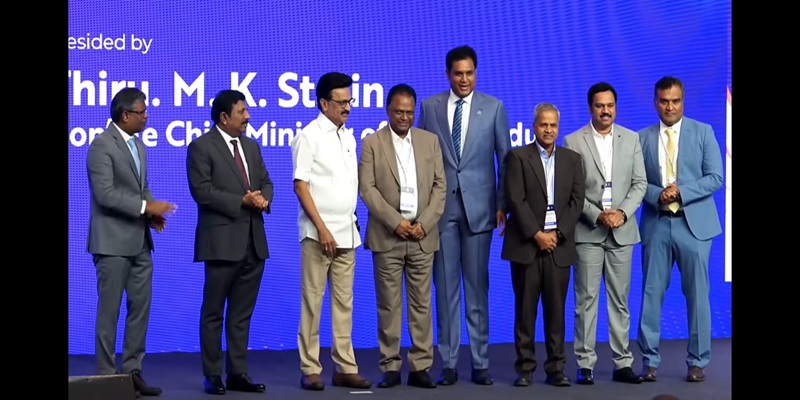
Mahindra Expands Advanced R&D and Testing Facilities at Chennai MRV
Mahindra & Mahindra invests Rs 1,960 million to expand its Advanced R&D and testing facilities at Mahindra Research Valley, creating 2,000 new jobs and reinforcing Chennai as an innovation hub.
Read more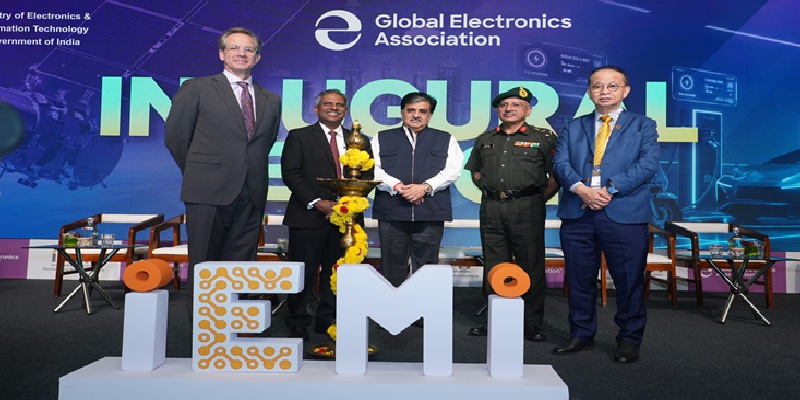
IEMI 2026 Concludes with Strong Industry and Defence Outcomes
IEMI 2026 concluded in Bengaluru with over 1,800 delegates, key MoU signings, industry reports, and global participation reinforcing India’s electronics manufacturing ambitions.
Read more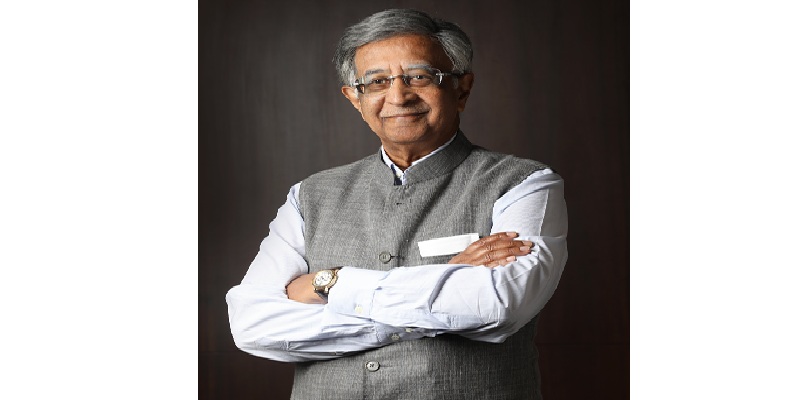
Bharat Forge Reports Strong Sequential Growth in Q3 FY26
Bharat Forge Limited posted 7.0 per cent sequential revenue growth in Q3 FY26, supported by strong domestic automotive performance and defence order execution.
Read moreRelated Products
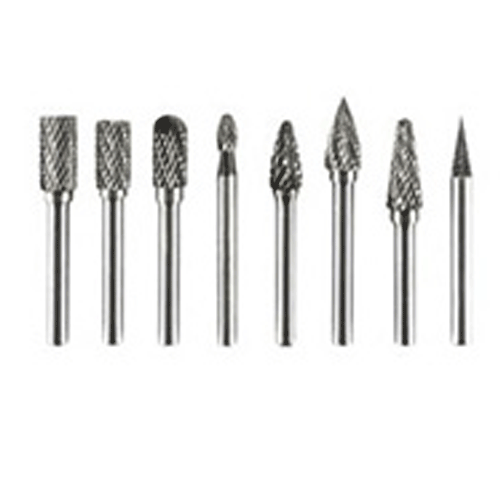
Carbide Burrs
SRT Industrial Tools & Equipments offers a wide range of carbide burrs.
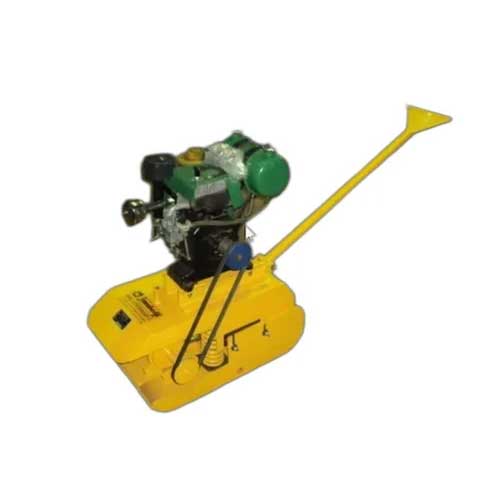
Jamshedji Soil Compactor
Jamshedji Constro Equip Pvt Ltd offers a wide range of jamshedji soil compactor.
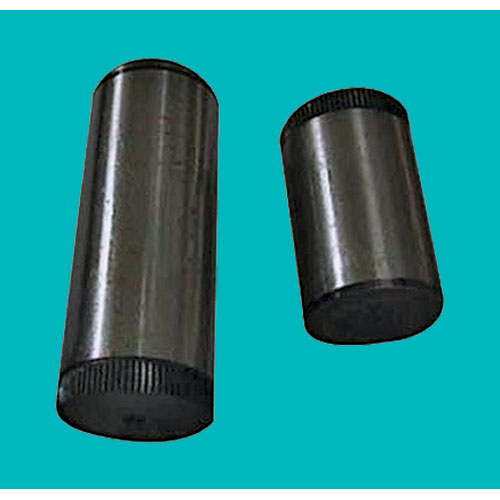
Ground Pins
Hans Machineries Private Limited offers a wide range of pins, hardened & ground. Read more






